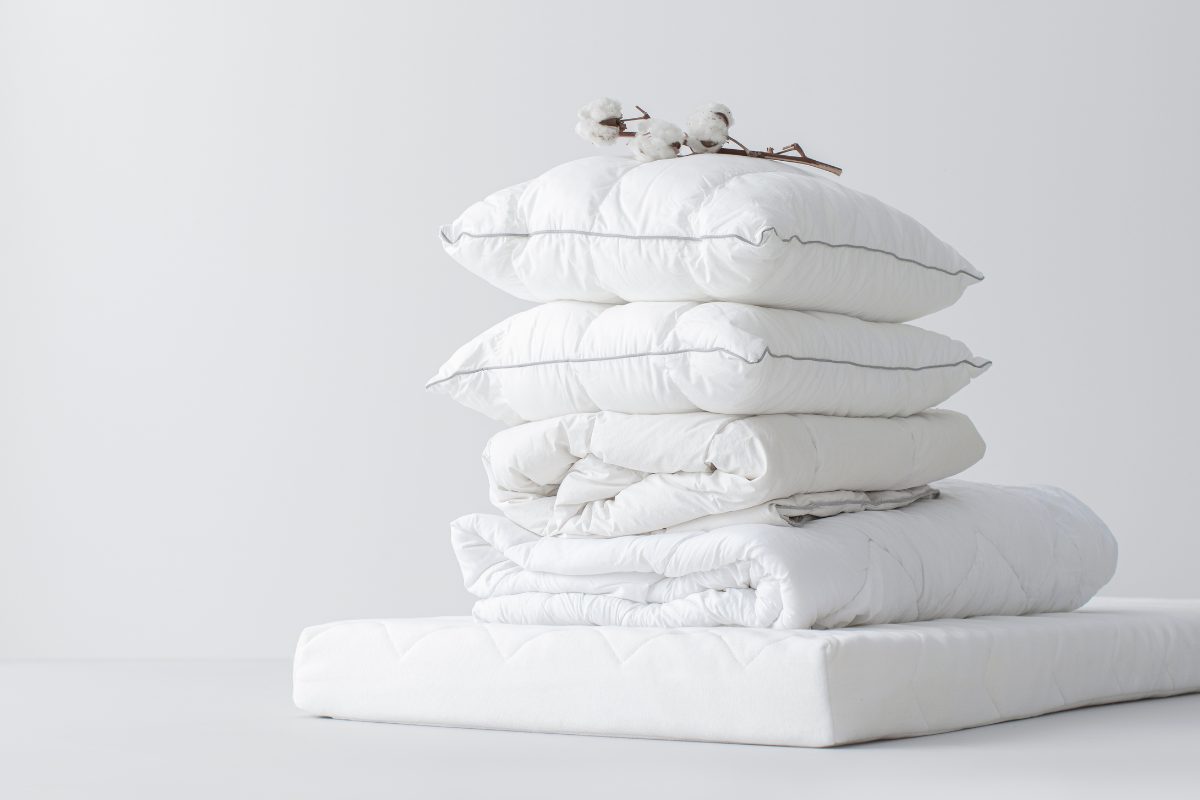Introduction
Your mattress plays a crucial role in your overall health and well-being. After all, you spend about a third of your life on it. But how often should you replace your mattress? Is there an ideal timeline, or is it all about how it feels?
Replacing a mattress is not something most people think about until they experience discomfort or sleep disturbances. However, experts agree that the condition of your mattress directly impacts the quality of your sleep, your health, and your overall comfort. Whether it’s sagging, worn out, or just past its prime, replacing your mattress at the right time can make a world of difference.
In this blog post, we’ll explore expert opinions, share compelling stats, and help you understand the best time to replace your mattress for optimal sleep quality.
The Lifespan of a Mattress: What Experts Say
Mattresses aren’t made to last forever. The lifespan of your mattress depends on various factors, such as its materials, usage, and maintenance. However, there’s a general rule of thumb that most experts agree on: a mattress should be replaced every 7 to 10 years. Let’s break down why this timeframe is so widely recommended.
1. Materials Matter: Different Mattresses Have Different Lifespans
The type of mattress you have significantly impacts its lifespan. Let’s take a look at the most common types and how long they typically last:
-
Innerspring Mattresses: Generally last about 7 to 8 years. These traditional mattresses can wear out quickly because the coils lose their ability to support your body properly over time.
-
Memory Foam Mattresses: These can last between 8 to 10 years. High-quality memory foam mattresses maintain their shape and support better, but they can eventually begin to break down, especially if they’re exposed to heat and moisture.
-
Hybrid Mattresses: With a combination of innerspring coils and foam, hybrids typically last between 7 to 9 years, depending on the quality of the materials used.
-
Latex Mattresses: Latex is one of the most durable materials and can last up to 12 years or more, especially if it’s natural latex.
The better the quality of the mattress materials, the longer it will last. So, if you’ve invested in a high-quality latex or memory foam mattress, it might last you a decade or more with proper care.
Why 7-10 Years Is the Sweet Spot
While there are many factors that affect mattress longevity, most experts recommend replacing your mattress every 7 to 10 years for several key reasons:
1. Support Decreases Over Time
As your mattress ages, it gradually loses its ability to support your body properly. The foam or coils can break down, leading to sagging or unevenness. This misalignment can put strain on your back, neck, and joints, causing discomfort and possibly contributing to long-term pain.
2. Hygiene Concerns: Dust Mites, Bacteria, and Mold
Over time, your mattress becomes a breeding ground for dust mites, bacteria, and mold. Even with regular cleaning and using a mattress protector, allergens and bacteria can accumulate in the layers of your mattress. This can lead to respiratory issues, allergies, and poor-quality sleep.
3. Decreased Comfort
Another obvious reason to replace your mattress is when it no longer provides the comfort you need. If you’re waking up with stiffness or discomfort, it’s a sign that your mattress may no longer be suitable for you. An uncomfortable mattress can impact your sleep quality, leading to restless nights and tired days.
How to Tell If It’s Time to Replace Your Mattress
While there’s a general timeline for replacing a mattress, it’s important to pay attention to signs that your mattress may need replacing earlier than expected. Here are some clear indicators:
1. Visible Damage
If your mattress shows signs of physical damage, such as sagging, lumps, or visible rips, it’s time for a replacement. These issues can significantly affect both the comfort and support your mattress provides.
2. Noisy Springs or Squeaks
A mattress with springs that make noise or squeak every time you move is a sign of wear and tear. This noise indicates that the internal springs are losing their function, and it’s affecting your sleep.
3. Unexplained Aches and Pains
If you wake up with sore muscles, back pain, or neck stiffness, your mattress may be the culprit. A mattress that no longer supports your body properly can contribute to these issues over time.
4. Worsening Allergies or Respiratory Issues
As your mattress ages, it accumulates dust, dust mites, and other allergens that can trigger allergies or worsen asthma. If you’ve noticed an uptick in allergy symptoms, your mattress could be the reason.
5. Restless Sleep or Difficulty Falling Asleep
If your mattress is no longer comfortable, you might find yourself tossing and turning, unable to get restful sleep. Discomfort can affect the quality of your sleep, leading to fatigue and poor mental clarity.
Expert Opinions and Stats on Mattress Replacement
It’s not just about replacing your mattress when it feels uncomfortable. There’s solid research to back up the idea that mattresses wear out over time, leading to negative consequences for your health.
Stat 1: A Poor Mattress Can Impact Sleep Quality
According to a study by the National Sleep Foundation, nearly 92% of people who reported poor sleep quality said that their mattress played a significant role in their inability to sleep comfortably.
Stat 2: Mattress Lifetime is Linked to Chronic Pain
A study by the Journal of Chiropractic Medicine revealed that patients who replaced their mattresses after 5 to 7 years reported a significant decrease in back and neck pain.
Stat 3: 1 in 3 People Experience Sleep Disturbances Due to Old Mattresses
A survey conducted by the Sleep Council found that 33% of people experience sleep disturbances due to their old, sagging mattresses, impacting both their physical and mental health.
Stat 4: Healthier Sleep with Regular Mattress Replacement
Research from the Sleep Foundation found that people who replaced their mattresses every 7 years reported an improvement in sleep quality and a reduction in sleep-related pain.
What Happens If You Don’t Replace Your Mattress?
Delaying the replacement of your mattress may seem like a way to save money, but in reality, you’re potentially sacrificing your health. A worn-out mattress can lead to:
-
Chronic pain (back, neck, or shoulder pain)
-
Poor sleep quality (leading to fatigue, irritability, and reduced cognitive function)
-
Increased allergy symptoms (dust mites, bacteria, and fungi)
-
Increased risk of sleep disorders (insomnia, restless leg syndrome)
Replacing your mattress on time not only improves sleep quality but also contributes to better overall health.
Conclusion: Don’t Wait Too Long to Replace Your Mattress
When it comes to your health and sleep quality, your mattress is more important than you may realize. Experts agree that mattresses should be replaced every 7 to 10 years, depending on the materials and use. Regularly replacing your mattress ensures that you maintain proper support, hygiene, and comfort, leading to better sleep and better health.
Ready to upgrade your mattress?
Explore our collection of organic, non-toxic bamboo mattresses, handmade in the UK using sustainable materials. Choose from 7000, 3000, or 1000 pocket springs to find the perfect level of support. Our bamboo mattresses offer a hypoallergenic, temperature-regulating sleep experience that’s both eco-friendly and affordable. Made with the highest ethical standards, these mattresses provide comfort and peace of mind for you and the planet.








Share:
How Old Is Too Old? The 2-Year Rule for Pillows Explained
How Long Do Bed Sheets Last? And How To Lengthen Bedding Life